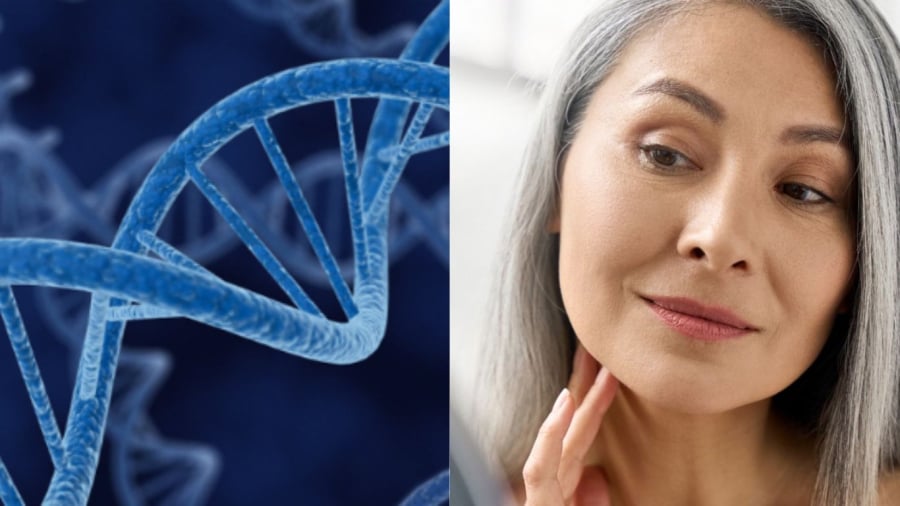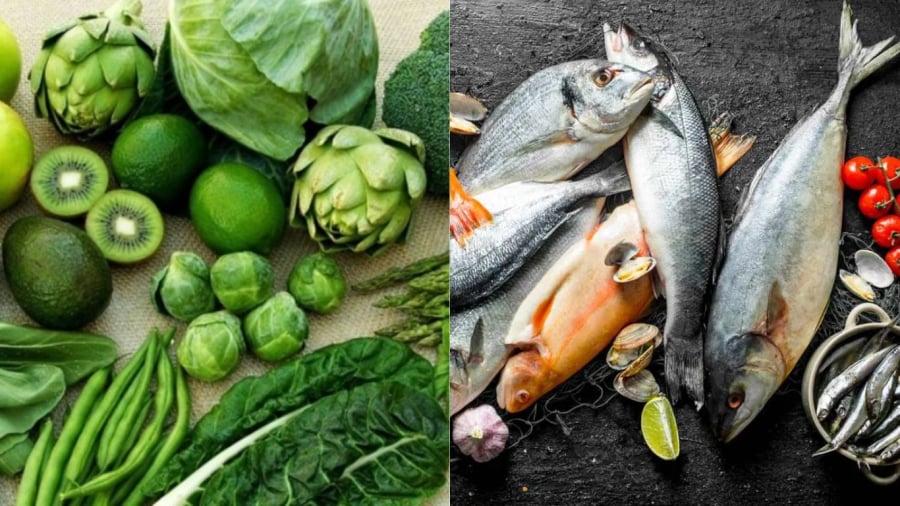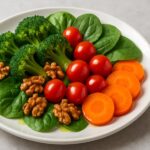A diet for youthful skin has been scientifically proven effective in multiple studies. Certain antioxidant, vitamin, and mineral-rich foods can significantly slow down the aging process, improving skin elasticity and radiance.
1. What is Methylation and Why is it Important for Skin Rejuvenation?
Methylation is a continuous biological process that occurs in the body, where a methyl group (CH₃) is attached to molecules, especially DNA. This process plays a crucial role in:
- Gene expression regulation
- Detoxification
- Reducing inflammation
- Boosting energy levels
- Enhancing mood and cognitive function
According to Dr. Kara Fitzgerald, a functional medicine expert and author of Younger You: “When methylation functions effectively, genes associated with aging are ‘turned off.’ Conversely, if this process is disrupted, signs of aging will accelerate.”

Methylation is a gene-related process that slows down skin aging.
2. How Does Methylation Affect Your Skin?
While not directly impacting the skin, methylation lays the foundation for protecting skin cells from damage caused by:
- Free radicals
- Chronic inflammation
- Cell regeneration disorders
A study published in Aging (2021) found that individuals who followed a methylation-supportive diet for eight weeks showed an average reduction of three years in their biological age. This is a promising finding in the field of anti-aging.
When methylation is optimized, skin becomes:
- More radiant
- Less wrinkled
- Firmer
- Slower to show signs of aging
3. The Diet for Youthful Skin
A methylation diet encourages the consumption of foods rich in B vitamins, choline, natural folate, betaine, and antioxidants. Here are some “superfoods” to include in your daily meals:
- Dark leafy greens: Spinach, kale, and lettuce are rich in folate, supporting healthy DNA regeneration.
- Eggs (yolk): A good source of choline, essential for methylation.
- Animal liver (beef or chicken): Abundant in vitamin B12 and iron, which enhance cellular activity.
- Beans and nuts: Sunflower seeds, almonds, and lentils are packed with vitamin B6 and folate.
- Fatty fish (salmon, sardines): Rich in omega-3 fatty acids, which reduce inflammation and promote healthy skin.
- Beets: Contain betaine, providing strong support for methylation.

A diet for youthful skin includes dark leafy greens, fatty fish, and eggs…
It is recommended to avoid the following foods:
- Refined sugar
- Fried foods
- Processed foods
These foods can disrupt methylation and cause inflammation, contributing to accelerated skin aging.
4. Dermatologist’s Opinion
According to Dr. Whitney Bowe, a renowned dermatologist in the US: “Skin cannot remain youthful if the body is not healthy. Optimizing methylation is one of the natural ways to strengthen the skin’s protective barrier, reduce inflammation, and support cell regeneration.”
The dermatologist also recommends combining a methylation-supportive diet with a healthy lifestyle, including:
- Adequate sleep
- Gentle exercise
- Stress management
This trio forms a “natural anti-aging strategy,” keeping skin youthful and healthy from within.
A diet for youthful skin is a foundational approach to skincare, slowing down the aging process by balancing gene activity and enhancing cellular function. Without the need for invasive treatments or expensive products, a simple change in your daily menu can be the first step towards sustaining your youthful appearance.
The 5 Culprits Behind Hormonal Imbalance in Women.
“Recent research has revealed an intriguing insight into the world of sleep and its impact on women’s health. The study found that women who consistently sleep less than 6 hours a night are at a significantly higher risk of developing hormonal imbalances compared to those who maintain a healthy 7-8 hour sleep routine. This discovery highlights the crucial link between sleep and our body’s intricate hormonal processes, emphasizing the importance of a good night’s rest for overall well-being.”





































